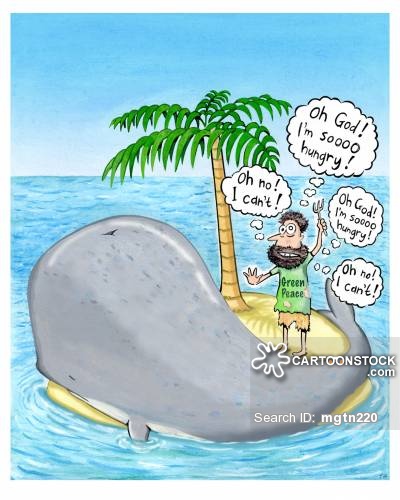![Never interrupt someone doing something you said couldn't be done. Decide. Whether or not the goal is worth the risks involved. If it is, stop worrying... [Amelia Earhart]](https://foodforthought.barthel.eu/wp-content/uploads/2017/04/Quotes-Amelia-Earhart.jpg)
So let me use “Throwback Thursday” to tell my view of a story from the dawn of the online travel era.
Allow me to give the necessary background. Many of my friends know bits and pieces.
Getting in Touch with Aviation IT
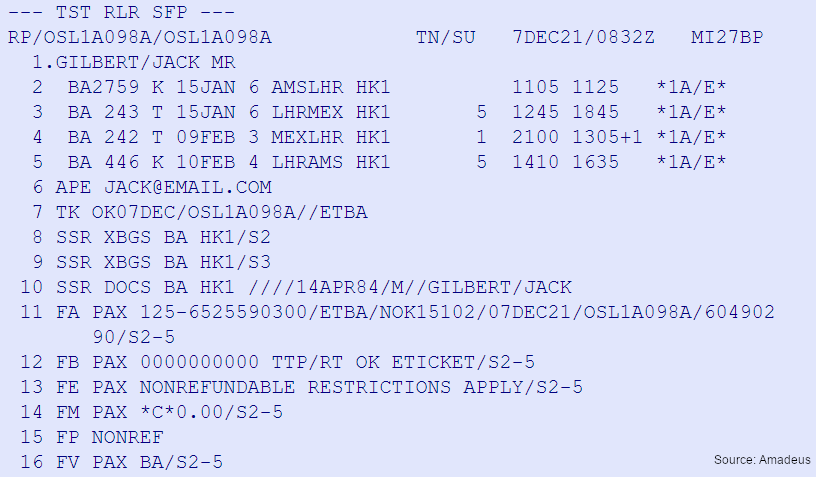 While this is so long ago, many in our industry have forgotten that SABRE was the first computerized global network that allowed us long before the World Wide Web to go into a travel agency somewhere and book flights, later hotels and other travel services on the other side of the world. When I entered the industry back in 1987 at American Airlines, it was pioneering days still. From an airline office in Frankfurt, soon later we had the first travel agencies using SABRE, aside the predominant “START system” in Germany. Though back then, travel agents became data interface managers. Learning to hack the system using a myriad of strange codes… Anyone recalls “Remarks-Messaging”? Queues, PNR Histories or AIRIMP?
While this is so long ago, many in our industry have forgotten that SABRE was the first computerized global network that allowed us long before the World Wide Web to go into a travel agency somewhere and book flights, later hotels and other travel services on the other side of the world. When I entered the industry back in 1987 at American Airlines, it was pioneering days still. From an airline office in Frankfurt, soon later we had the first travel agencies using SABRE, aside the predominant “START system” in Germany. Though back then, travel agents became data interface managers. Learning to hack the system using a myriad of strange codes… Anyone recalls “Remarks-Messaging”? Queues, PNR Histories or AIRIMP?
From Airline to Travel IT
It was five years later, back in 1992 that as an established expert for “CRS” I joined German Amadeus-predecessor “START” as the Subject Matter Expert (SME) for System One and Sabre. At the time, Start as an early “Windows-like tool” for the German travel industry combined multiple systems like the Lufthansa CRS inventory system (something like Sabre), German Rail, Tour Operator TUI and several other travel product providers in a single system. At that time, the launch of Amadeus was imminent and following the takeover of most Sabre staff into the new Start Amadeus company structure, suddenly that deal failed. Surprise surprise.
!["Do something about it when something "smells funny". Even if it's not on your job description, IT'S YOUR JOB." [Henna Inam]](https://foodforthought.barthel.eu/wp-content/uploads/2019/02/Inam-Henna-Its-Your-Job.jpg) Together with a colleague I became responsible point of contact for airlines, managing, explaining and mitigating the “booking discrepancies” in a pre-online world, when bookings were transferred by teletype (a telex like, but automated system), not in real time. Only inside Amadeus, real time was “normal”. After some years, the internal network of which I wasn’t part of established a “Product Management Flight”, taking over my colleagues and my responsibilities… By the time I’ve become a member of the local Airline Sales Representatives Association (ASRA), though that suddenly was considered as an overstepping on my responsibilities. Something I found and find a statement of total bureaucratics’ thinking. Many years later, that was why Henna Inam’s statement resonated so well with me.
Together with a colleague I became responsible point of contact for airlines, managing, explaining and mitigating the “booking discrepancies” in a pre-online world, when bookings were transferred by teletype (a telex like, but automated system), not in real time. Only inside Amadeus, real time was “normal”. After some years, the internal network of which I wasn’t part of established a “Product Management Flight”, taking over my colleagues and my responsibilities… By the time I’ve become a member of the local Airline Sales Representatives Association (ASRA), though that suddenly was considered as an overstepping on my responsibilities. Something I found and find a statement of total bureaucratics’ thinking. Many years later, that was why Henna Inam’s statement resonated so well with me.
Travel Automation
![“For those who agree or disagree, it is the exchange of ideas that broadens all of our knowledge” [Richard Eastman]](https://foodforthought.barthel.eu/wp-content/uploads/2016/08/eastman_quote.jpg) In the meanwhile, I had build a global network, shared my knowledge not only with my airline sales friends, but also on CompuServe, an “online portal”, and there “GO:TRAVPRO”, a group of online travel professionals, where I met one of my mentors in my life, Richard Eastman.
In the meanwhile, I had build a global network, shared my knowledge not only with my airline sales friends, but also on CompuServe, an “online portal”, and there “GO:TRAVPRO”, a group of online travel professionals, where I met one of my mentors in my life, Richard Eastman.
So suddenly degraded from “Mr. Aviation” to “Helpdesk Executive”, I left Amadeus to start a new venture, establishing the first “GDS robotic tools” that automated recurring processes in those travel tools. GDS was the new name for Amadeus, Galileo, Sabre and Worldspan, defining themselves as “Global (Travel) Distribution Systems” and not mere (airline) Computer Reservation Systems…
I developed a tool myself that allowed Air Canada to maintain their “information pages” in the GDSs and use the same content for this new “Internet”-thingy. I gave user training to some travel agencies using “AQUA”, a software that automatically checked and improved travel agent bookings, checking for better prices, better connections, improving the response to customer needs. Then one of the moments in life happened.
Airline Sales & e-Commerce
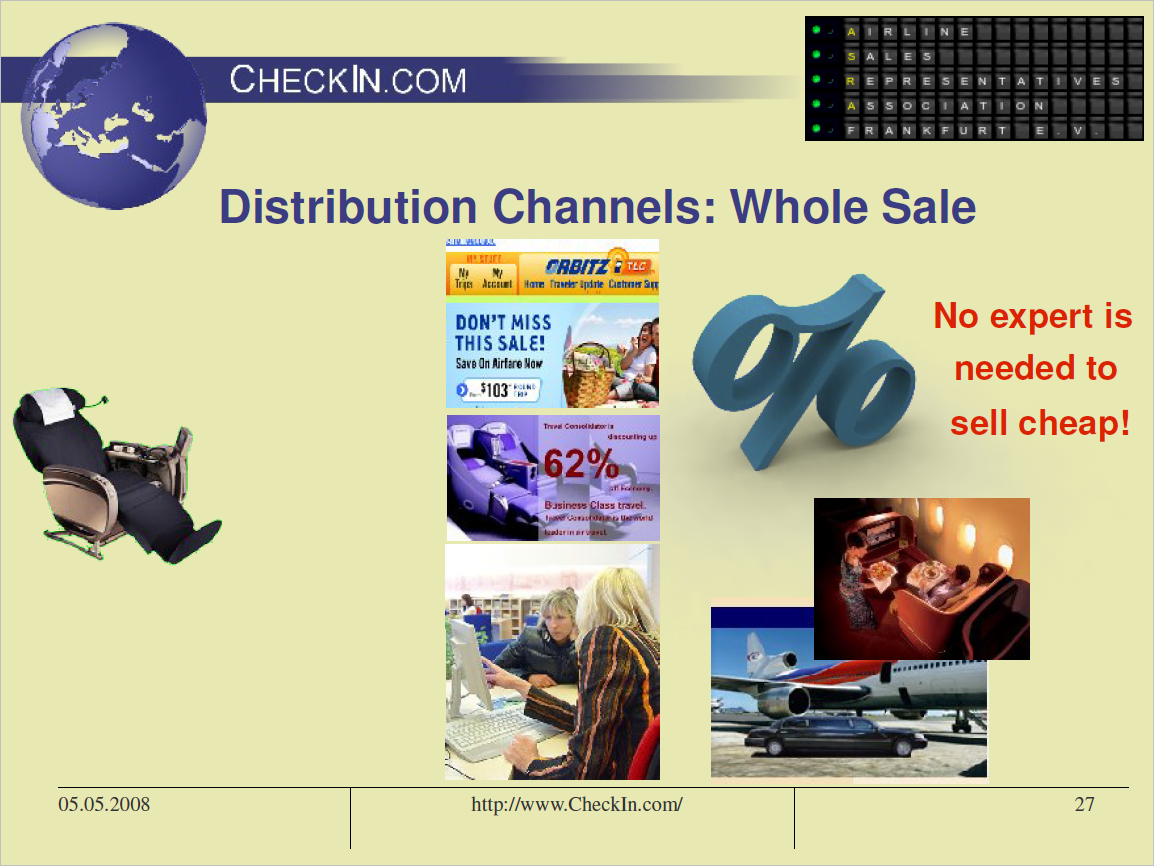 On research for the ASRA on my second “Airline Sales & e-Commerce”-presentation, a series covering GDS, Online Services like AOL or CompuServe, but also already the new “World Wide Web” (WWW), that ran annually for some 15 years, on the WWW which I still then accessed via a then new link by CompuServe, I stumbled across a single form field on a website that called itself the “Internet Travel Network”. It was really pioneering days, the Internet being something for student freaks… The form took a Sabre-command and returned the result, usually a flight availability. Or for the smarter of us also an air fares analysis result.
On research for the ASRA on my second “Airline Sales & e-Commerce”-presentation, a series covering GDS, Online Services like AOL or CompuServe, but also already the new “World Wide Web” (WWW), that ran annually for some 15 years, on the WWW which I still then accessed via a then new link by CompuServe, I stumbled across a single form field on a website that called itself the “Internet Travel Network”. It was really pioneering days, the Internet being something for student freaks… The form took a Sabre-command and returned the result, usually a flight availability. Or for the smarter of us also an air fares analysis result.
I discussed this with the late Louis Arnitz, a client of mine on the AQUA-business. And questioning that using a cache system like AQUA used on existing bookings, it should be possible to process a booking “online” through a web interface. In the following year, we developed what was to become Cytric, the first tool that allowed a commercial booking to be done on the Internet. During that process, there’s an anecdote worth a Throwback Thursday…
Online Travel Booking through the Web using Amadeus
 In 1996, some four or six weeks before a milestone that changed our industry, we did by mistake do test bookings in the real-world system and booked up about a hundred Lufthansa flights with travelers called Test Tester… While that was far enough in the future and we could resolve the issue with Lufthansa, we were approached by Amadeus, that it was not acceptable to abuse their system like this and they would never, never ever approve of someone doing bookings on Amadeus through a web-page!! No f***ing way! Oh yes, we were in big trouble.
In 1996, some four or six weeks before a milestone that changed our industry, we did by mistake do test bookings in the real-world system and booked up about a hundred Lufthansa flights with travelers called Test Tester… While that was far enough in the future and we could resolve the issue with Lufthansa, we were approached by Amadeus, that it was not acceptable to abuse their system like this and they would never, never ever approve of someone doing bookings on Amadeus through a web-page!! No f***ing way! Oh yes, we were in big trouble.
Those four to six weeks later though, we signed with Siemens to implement our tool into their new “Intranet” calling it the “Siemens Travel Net… Siemens, being a top technology partner of Amadeus I must add. Oops. So once in a sudden, Amadeus was “convinced” by Siemens to allow doing bookings through a webpage. And yes, I recall their “decision” that it’s exceptionally accepted for Siemens Intranet. But don’t we dare to make something like that available to end users!!
A mere year later, there was the Amadeus Global Customer Conference in Barcelona. A close friend in Amadeus, who had helped us pulling that stunt with good ideas on my questions, asked me if I could give a quote they could use to show that they could “do Internet”, some weird development that suddenly hyped. Not that they had any API then, we had developed it all using “screen scraping”, “reading” standardized formats and specifying where the relevant information was, taking it to bits and pieces of typical machine code we then converted to human-interpretable information. So suddenly and to my great surprise, the VP of Amadeus holding the opening keynote quoted some “Juergen Barthel” of “FAO Travel” that we couldn’t have done it without Amadeus proactive help and support. Oh did we have a laugh after 😂
It’s sure noteworthy, that the tool became known as Cytric, with a spin-off known as e-Hotel, used globally and in the end acquired by … Amadeus.
Thinking outside the Box … and beyond
 A friend, I came to trust, just recently called me a “visionary”, something I never call myself. When I learned the bells and whistles of “Economics” (Whole Sale & Foreign Sales), my instructor on business education was the boss of a large whole sale logistics center. He taught me to always think things through. What will be the repercussions of buying from the cheapest? Your product will loose in quality. But, he instilled that in me: There is always someone cheaper out there. And he also emphasized and taught me to leave the comfort zone of “we have always done it that way”. We must think outside the box and constantly strive to be better.
A friend, I came to trust, just recently called me a “visionary”, something I never call myself. When I learned the bells and whistles of “Economics” (Whole Sale & Foreign Sales), my instructor on business education was the boss of a large whole sale logistics center. He taught me to always think things through. What will be the repercussions of buying from the cheapest? Your product will loose in quality. But, he instilled that in me: There is always someone cheaper out there. And he also emphasized and taught me to leave the comfort zone of “we have always done it that way”. We must think outside the box and constantly strive to be better.
Later, I appreciated other role models and mentors, guiding me further down that road. Be it a Bob Crandall, Rita King or Colleen at American, a Hans Gesk and Jerry Kilkelly at Northwest, be it Heinz at Amadeus or Richard on GO:TRAVPRO, Louis Arnitz and Karin Froese in i:FAO, Sean and Alexandre in KDS, and so many others then and since. In turn, I survived the pandemic for being much asked as advisor. Not for day-to-day stuff, but as a crisis manager. As most of them – most people I consider friends – are simply unable to leave their boxes. Stuck in theirs.
Now, I don’t see myself a visionary. That’d be “day-dreaming”. I focus on what’s possible and how to make it happen. That’s why I’m so uncomfortable to so many, why they do call me “visionary”, but also “heretic”, “unorthodox” or “inconvenient”. “Hell Yeah!”… And don’t I let a mistake stop me from doing what’s right!
Food for Thought…

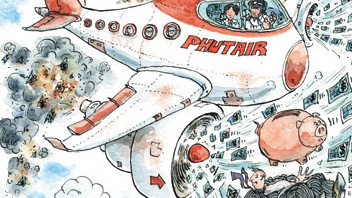 OAG summarized on the
OAG summarized on the  To claim “aviation” is a loss making business is true and can’t be further from the truth.
To claim “aviation” is a loss making business is true and can’t be further from the truth.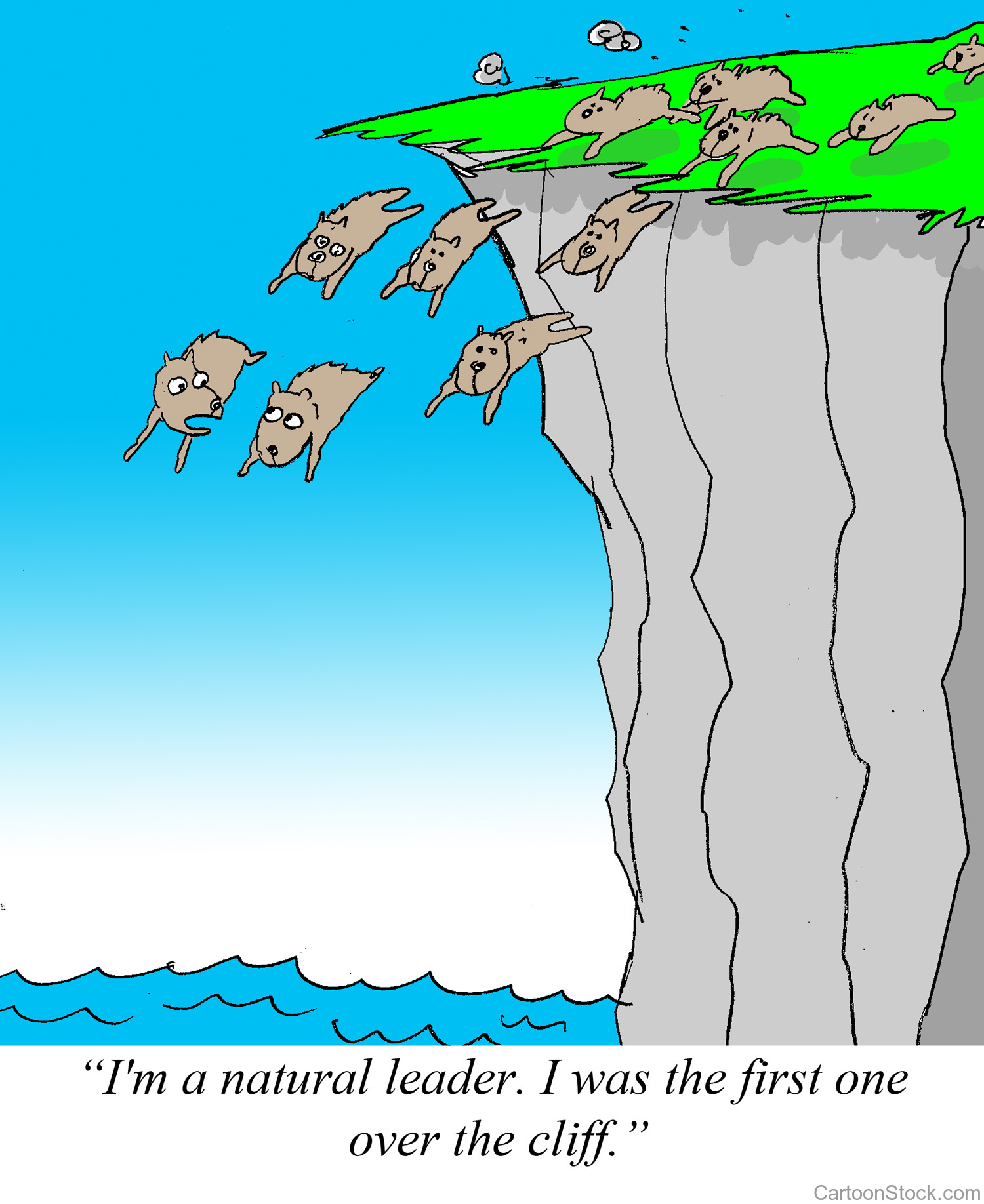 This is one reason, I do not believe we can make
This is one reason, I do not believe we can make  To date, I am still working with consulting companies reviewing airline business plans. Aside the usual failure issues, size is a recurring issue. Another being the lack of fallback in case of flight disruptions, may they be caused by technical issues, weather or other events. Their focus on cheap “human resources” and missing team building results in friction and internal competition that further weakens their product offering.
To date, I am still working with consulting companies reviewing airline business plans. Aside the usual failure issues, size is a recurring issue. Another being the lack of fallback in case of flight disruptions, may they be caused by technical issues, weather or other events. Their focus on cheap “human resources” and missing team building results in friction and internal competition that further weakens their product offering.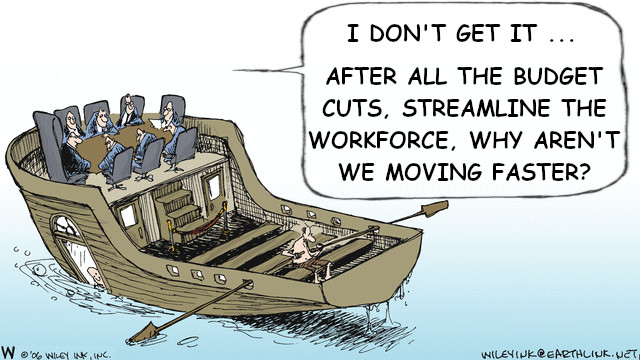
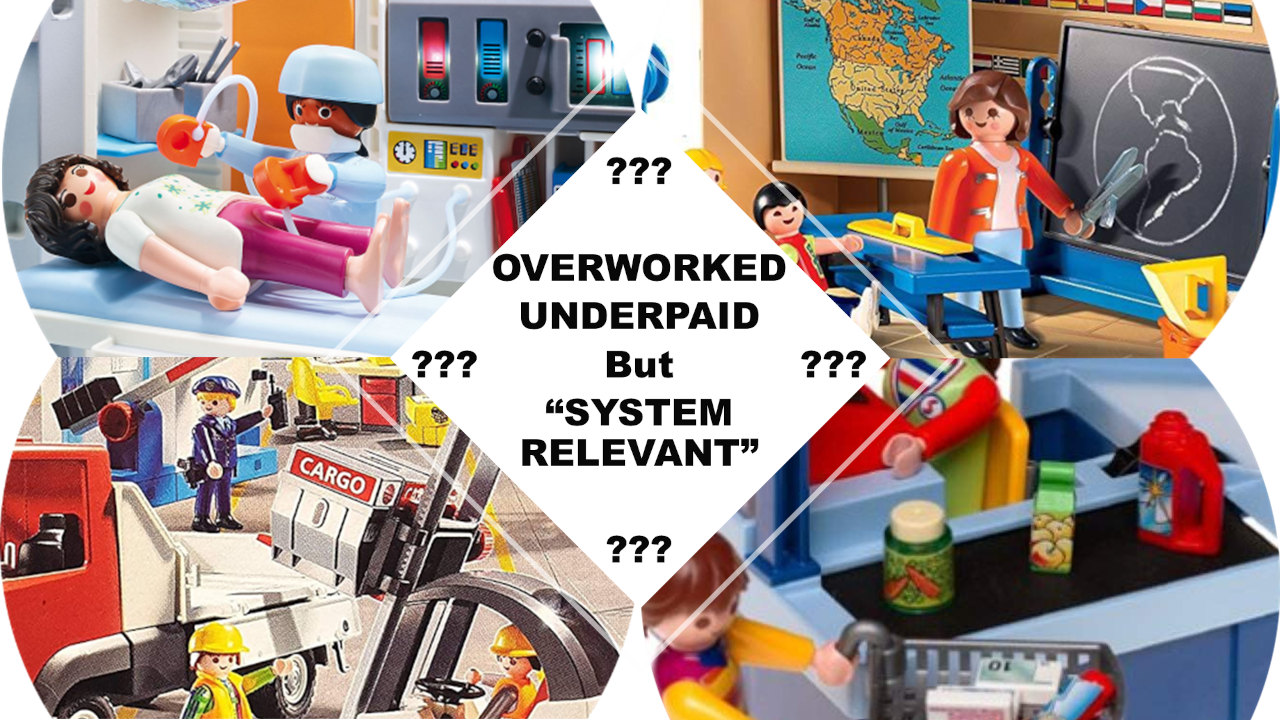 Is your job “system relevant”? If you work in home office, I can tell you the answer is No. If you work in consulting, I can very likely tell you the answer being No. Working in aviation and transport, the answer very likely is No. And if your salary is above average, the answer also very likely is No.
Is your job “system relevant”? If you work in home office, I can tell you the answer is No. If you work in consulting, I can very likely tell you the answer being No. Working in aviation and transport, the answer very likely is No. And if your salary is above average, the answer also very likely is No.
 My “intern” boss (again) taught me respect for everyone. The guy on the fork-lift, the cleaners, truck drivers and “secretaries” (yeah, we still had those). He taught us to set up the coffee when it was empty and not bother the secretaries. To clean up ourselves to make the cleaners’ jobs easier. To think beyond our petty box as “office workers” and value the hard work of the real workers. Also to question, but then also embrace the value of our work. IF we added value.
My “intern” boss (again) taught me respect for everyone. The guy on the fork-lift, the cleaners, truck drivers and “secretaries” (yeah, we still had those). He taught us to set up the coffee when it was empty and not bother the secretaries. To clean up ourselves to make the cleaners’ jobs easier. To think beyond our petty box as “office workers” and value the hard work of the real workers. Also to question, but then also embrace the value of our work. IF we added value.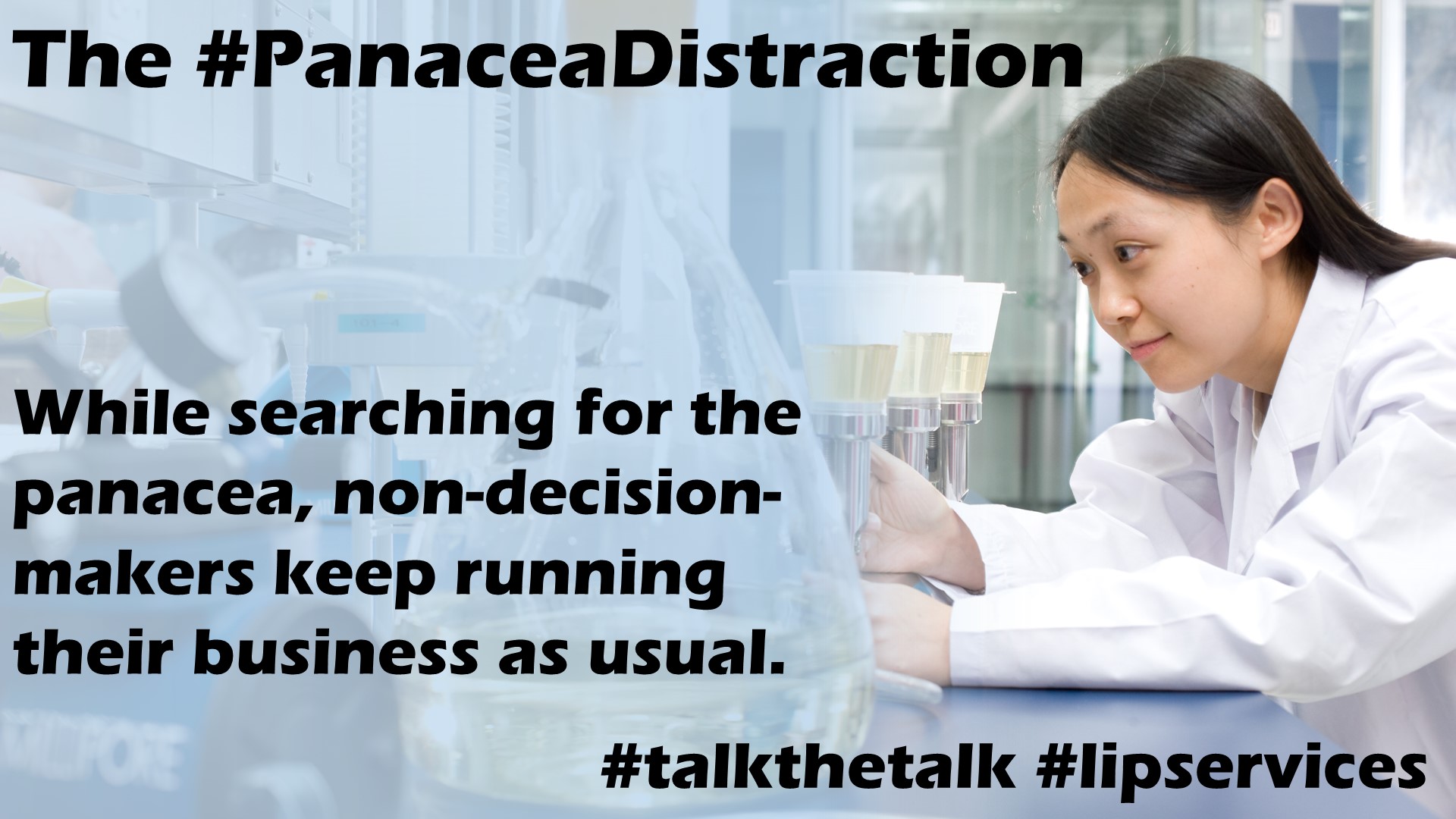 I recently attended a multi-week project by United Nations Climate Action on Circular Economy. And the need for lifecycle-assessment. But it was also mostly #talkthetalk and academic ideas. And I had several objectives that then led to my image about the panacea distraction.
I recently attended a multi-week project by United Nations Climate Action on Circular Economy. And the need for lifecycle-assessment. But it was also mostly #talkthetalk and academic ideas. And I had several objectives that then led to my image about the panacea distraction.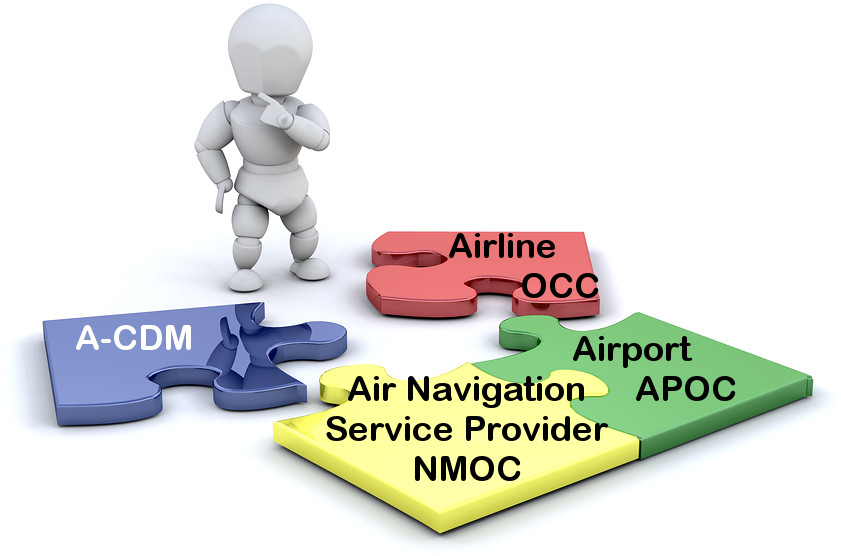
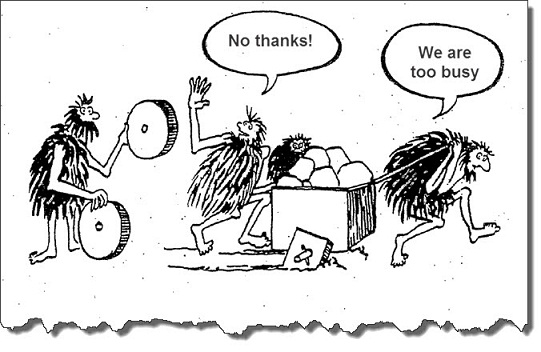 Last week, I had a lengthy phone call with an airport manager in the U.S. Snow-Belt, asking me about ideas, how to break up the silo thinking that keeps all his ideas about a common airport operations center as a basis for some A-CDM-style development from moving forward. Next winter approaching, he’s worried about repeating the past years’ experience of unnecessary delays. “The airline always knows better” he complained to me. If we offer them solution, it’s not theirs, so it’s being turned down. Communication is faulty and in crisis, everyone works on their own. #talkthetalk
Last week, I had a lengthy phone call with an airport manager in the U.S. Snow-Belt, asking me about ideas, how to break up the silo thinking that keeps all his ideas about a common airport operations center as a basis for some A-CDM-style development from moving forward. Next winter approaching, he’s worried about repeating the past years’ experience of unnecessary delays. “The airline always knows better” he complained to me. If we offer them solution, it’s not theirs, so it’s being turned down. Communication is faulty and in crisis, everyone works on their own. #talkthetalk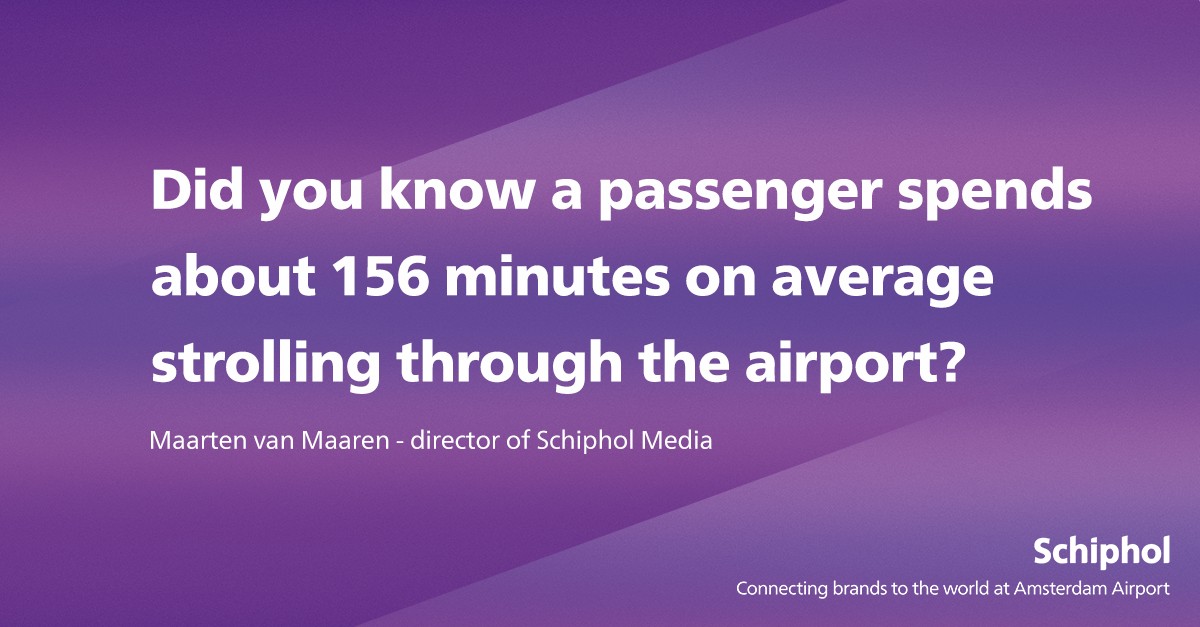 Now give me a break. When I read this “promo” on LinkedIn, is it just me, seeing the fault in it?
Now give me a break. When I read this “promo” on LinkedIn, is it just me, seeing the fault in it?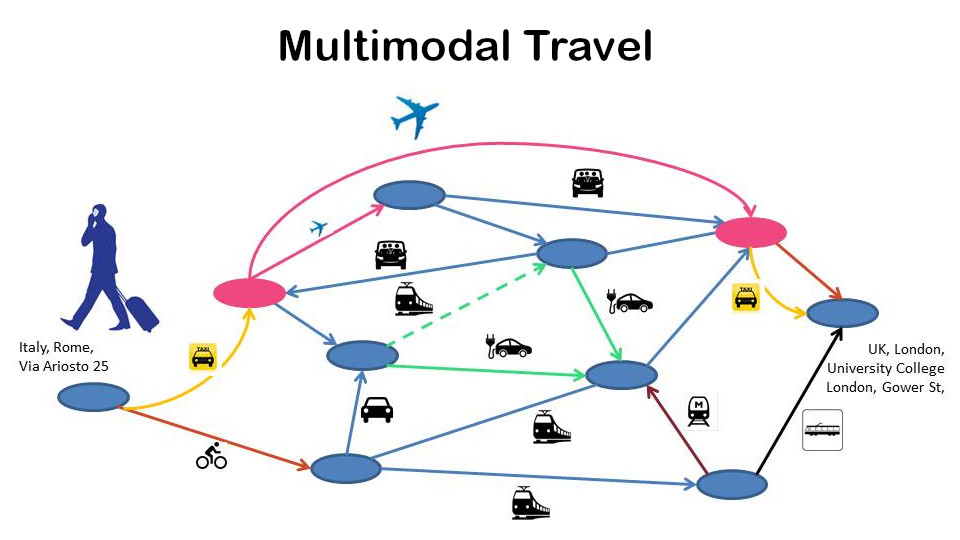 Our vision for what was to be Cytric, that we wanted to follow, a vision not existing now, 25 years later, was to enter the home address, the destination address and the system would provide you the best travel options for you to get to the airport using car, rail, taxi, whatever, fly towards your destination and again take rail, taxi, rental car, whatever, to get to where you needed to go.
Our vision for what was to be Cytric, that we wanted to follow, a vision not existing now, 25 years later, was to enter the home address, the destination address and the system would provide you the best travel options for you to get to the airport using car, rail, taxi, whatever, fly towards your destination and again take rail, taxi, rental car, whatever, to get to where you needed to go. Speaking about Business Travel Management, we don’t need data typists any more. In the good old days, travel agents were the experts, knowing how to get the traveler from A to B, halfway (or all) around the world… Then came the GDS and the travel agents became data interfaces to the big data accessed through travel computers being connected with mighty servers. Something we call cloud computing today, using “dummy terminals”. Using codes like AN19DECFRAMIA and SS1B1M2 to search for and book a flight. Or similar complicated tools to book a rail ticket.
Speaking about Business Travel Management, we don’t need data typists any more. In the good old days, travel agents were the experts, knowing how to get the traveler from A to B, halfway (or all) around the world… Then came the GDS and the travel agents became data interfaces to the big data accessed through travel computers being connected with mighty servers. Something we call cloud computing today, using “dummy terminals”. Using codes like AN19DECFRAMIA and SS1B1M2 to search for and book a flight. Or similar complicated tools to book a rail ticket.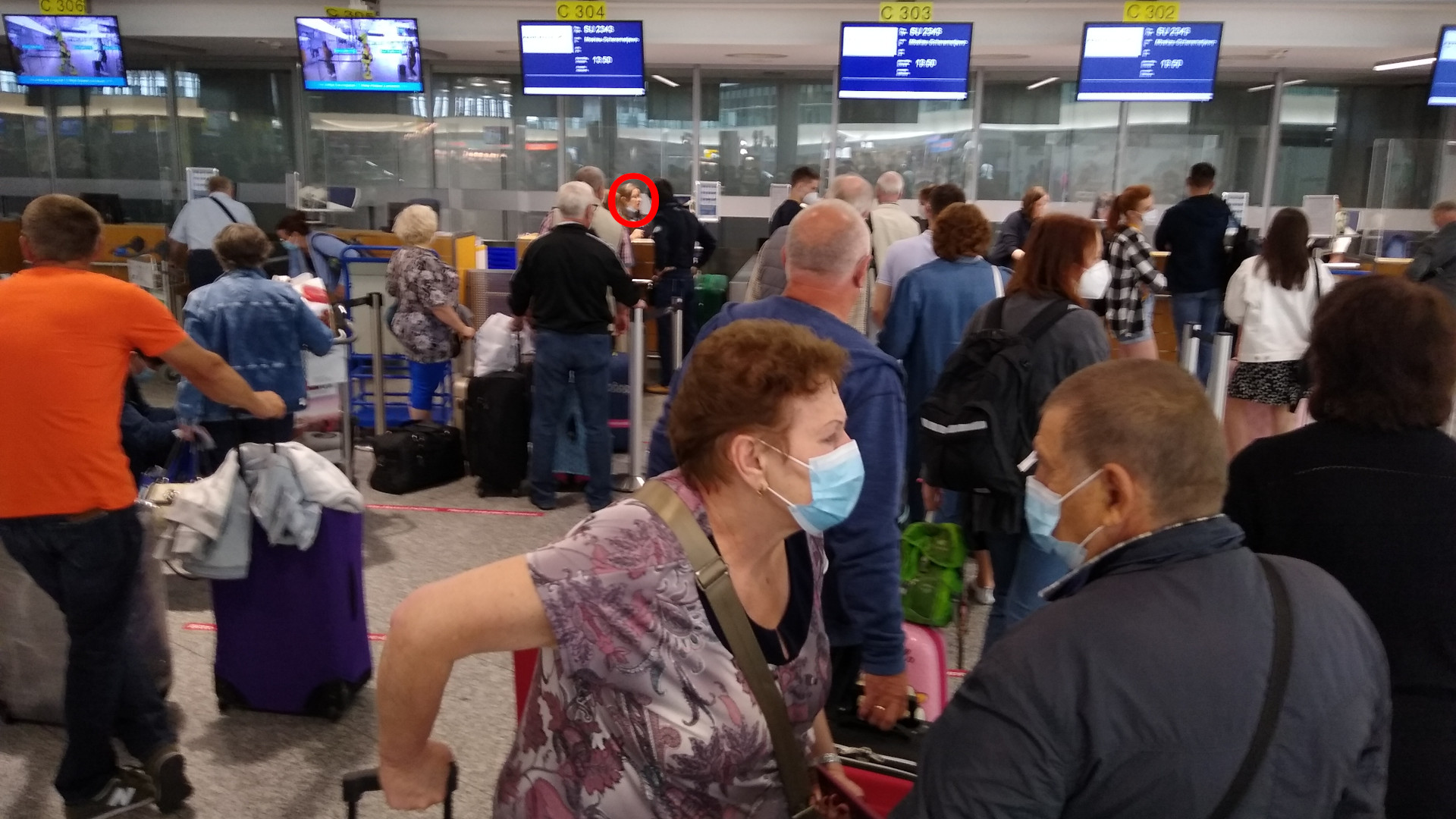 It is why I believe we need regional aviation and we need more of it. Smaller aircraft, connecting secondary cities, offering quick and direct connection. Hubs are good for the global networks. And as I kept and keep emphasizing. Regional airports must not look out, how to get their locals out to the world. But to
It is why I believe we need regional aviation and we need more of it. Smaller aircraft, connecting secondary cities, offering quick and direct connection. Hubs are good for the global networks. And as I kept and keep emphasizing. Regional airports must not look out, how to get their locals out to the world. But to  As I approached it back in 2016/17 and shared the learning curve at
As I approached it back in 2016/17 and shared the learning curve at 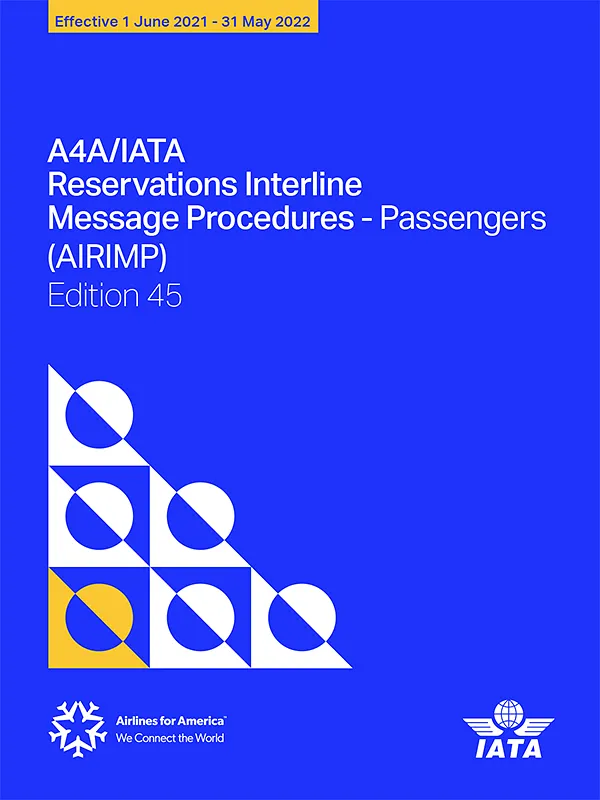 An older
An older 
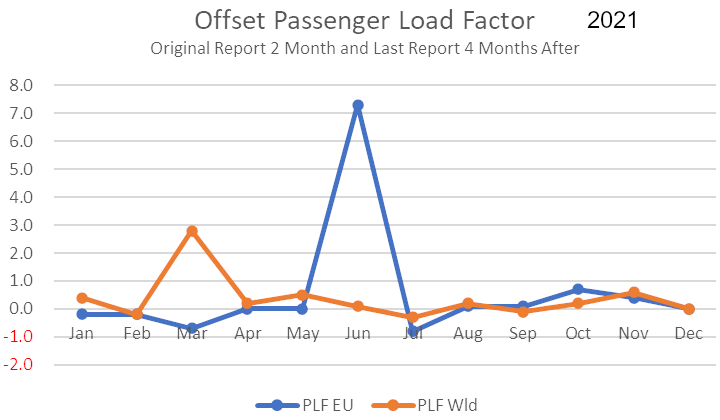 Our main problem is that our Powers-That-Be still consider themselves in a competition. Data is value, so put it in siloes. Where OpenStreetMap enabled mapping solutions, aviation data is still locked away. It takes two months until IATA publishes passenger data, after four months those numbers happen to differ substantially.
Our main problem is that our Powers-That-Be still consider themselves in a competition. Data is value, so put it in siloes. Where OpenStreetMap enabled mapping solutions, aviation data is still locked away. It takes two months until IATA publishes passenger data, after four months those numbers happen to differ substantially. Where aviation in the 1960s to -80s was a pacemaker in global eCommerce, it is now limping behind. Can tell stories about replies from industry bodies when I informed them about factual mistakes in their data. And their ignorance shown by neither directing the report to their PTBs, nor updating the faulty information. Instead of working together to develop the aviation of the future, we have conservative forces in play that hinder real development. Be that about A-CDM, data interfaces, data intelligence. We limp behind and instead of doing, we #talkthetalk.
Where aviation in the 1960s to -80s was a pacemaker in global eCommerce, it is now limping behind. Can tell stories about replies from industry bodies when I informed them about factual mistakes in their data. And their ignorance shown by neither directing the report to their PTBs, nor updating the faulty information. Instead of working together to develop the aviation of the future, we have conservative forces in play that hinder real development. Be that about A-CDM, data interfaces, data intelligence. We limp behind and instead of doing, we #talkthetalk.


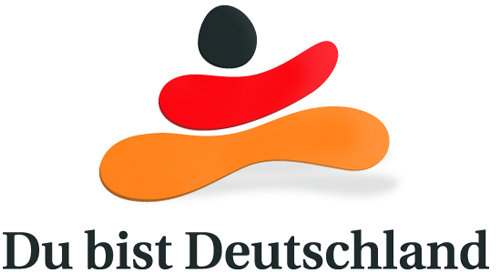 In Germany we had a barrel-burst campaign “You are Germany” – what do you do to make things better?
In Germany we had a barrel-burst campaign “You are Germany” – what do you do to make things better?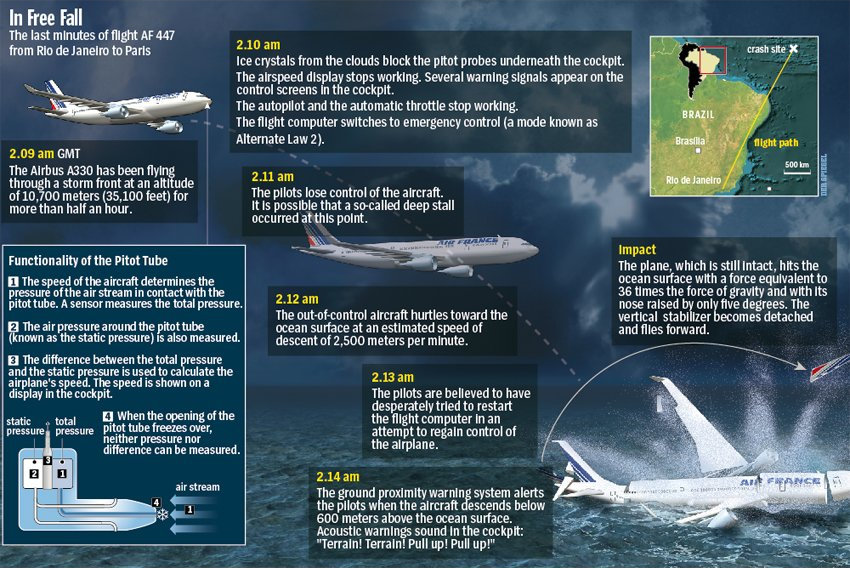


![“Our Heads Are Round so our Thoughts Can Change Direction” [Francis Picabia]](https://foodforthought.barthel.eu/wp-content/uploads/2021/10/Picabia-Francis-Round-Heads.jpg)


 I had a student I made my assistant back in Erfurt. When I left, her fellow colleagues degraded her back to “student” (cooking coffee, assisting their work).
I had a student I made my assistant back in Erfurt. When I left, her fellow colleagues degraded her back to “student” (cooking coffee, assisting their work).  Same for
Same for 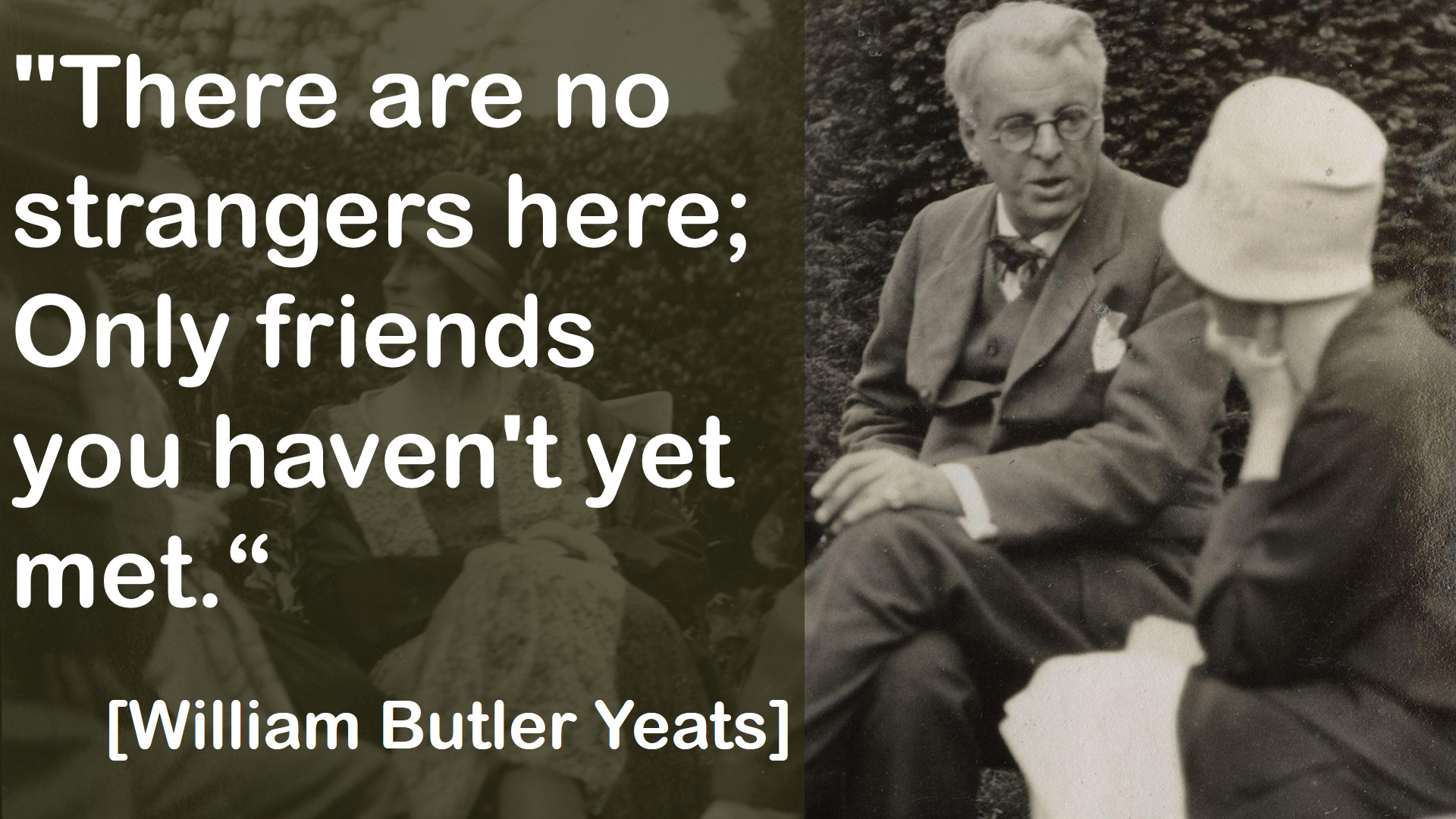
 Many of you know, Yulia is an introvert, where I’m an extrovert. Where it is very easy for me to stand in front of a crowd or meet strangers, this is a real challenge for Yulia. Which is also, why I help her promoting CheckIn.com. That difference in personality is rather easy to grasp. the other differences are more difficult in the beginning.
Many of you know, Yulia is an introvert, where I’m an extrovert. Where it is very easy for me to stand in front of a crowd or meet strangers, this is a real challenge for Yulia. Which is also, why I help her promoting CheckIn.com. That difference in personality is rather easy to grasp. the other differences are more difficult in the beginning.
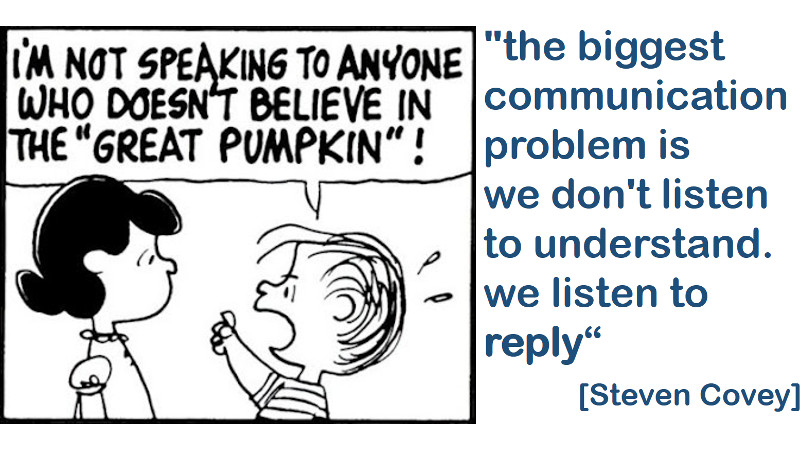
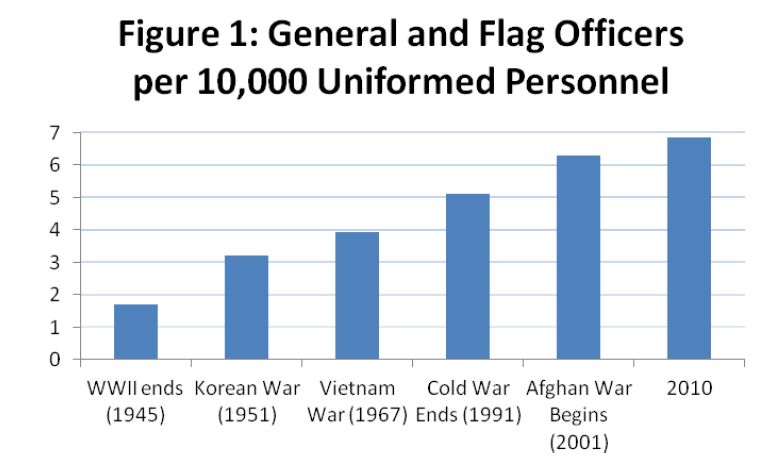
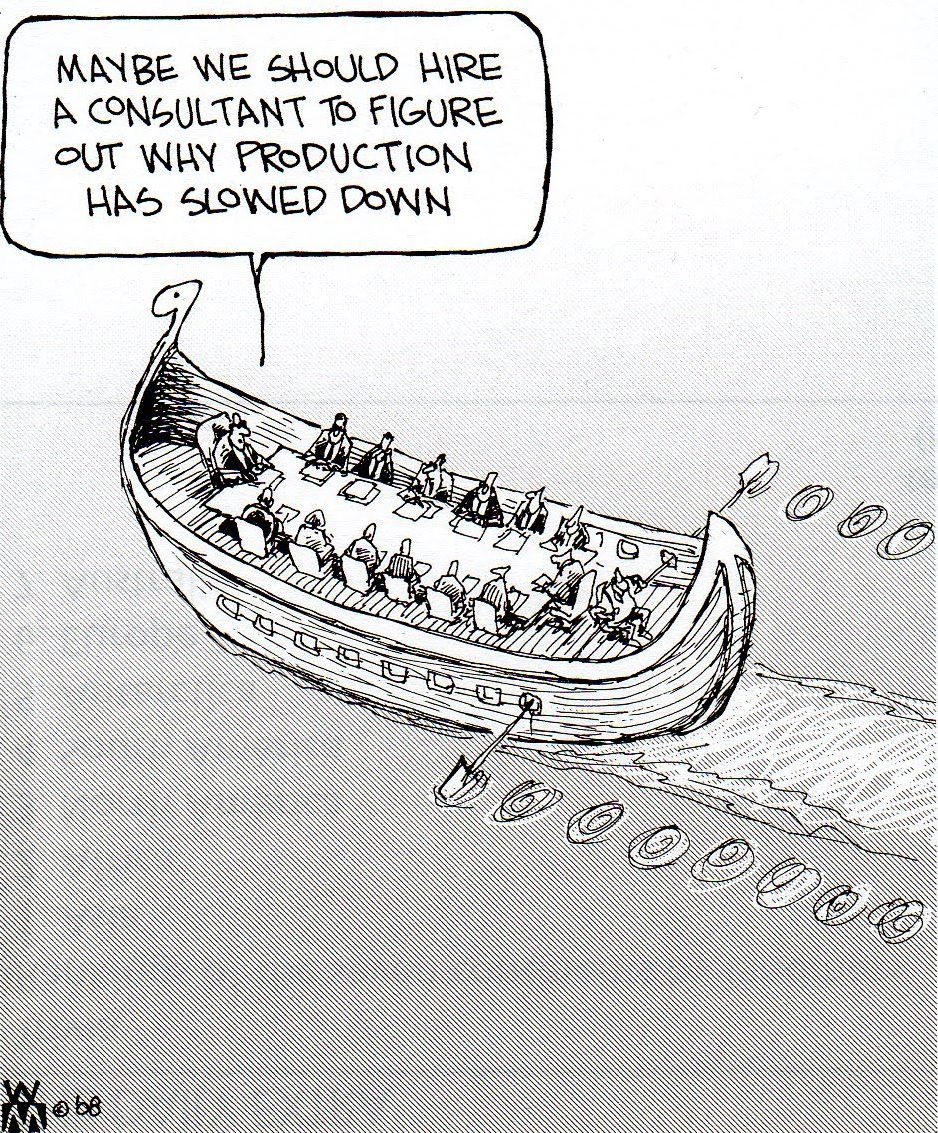 Looking at current structures in the industry, we have too many Chiefs and too little Indians. In fact, I know companies (i.e. consulting) having 10 Chiefs on a single Indian or less. Mostly secretaries, IT support and cleaning staff, often enough outsourced. And we pay the Indians badly and feed the Chiefs. Some figures in Germany make me afraid. In the last years, the numbers of people living of social security despite having a job increased year over year. Yes, they have work. But not enough to live from, they need state support to survive!
Looking at current structures in the industry, we have too many Chiefs and too little Indians. In fact, I know companies (i.e. consulting) having 10 Chiefs on a single Indian or less. Mostly secretaries, IT support and cleaning staff, often enough outsourced. And we pay the Indians badly and feed the Chiefs. Some figures in Germany make me afraid. In the last years, the numbers of people living of social security despite having a job increased year over year. Yes, they have work. But not enough to live from, they need state support to survive! At the same time these highly paid managers reduced their personal risk in case of failure by insurances and contractual clauses. But imply that their mega-salaries are because of all the responsibility they have for the company and its employee and their well-being. Whereas the net income of their workers have in reality dropped many years as a result of inflation, tax and social security increases, etc. And not to forget by making “Leiharbeit”, subcontracting labor. That way, the history of working for a company throughout your lifetime became a myth, companies, no, not faceless companies, but company managers are no longer loyal to their workers. And not paying subcontracted labor a surplus for the job risk but paying them mostly even less than their own.
At the same time these highly paid managers reduced their personal risk in case of failure by insurances and contractual clauses. But imply that their mega-salaries are because of all the responsibility they have for the company and its employee and their well-being. Whereas the net income of their workers have in reality dropped many years as a result of inflation, tax and social security increases, etc. And not to forget by making “Leiharbeit”, subcontracting labor. That way, the history of working for a company throughout your lifetime became a myth, companies, no, not faceless companies, but company managers are no longer loyal to their workers. And not paying subcontracted labor a surplus for the job risk but paying them mostly even less than their own.
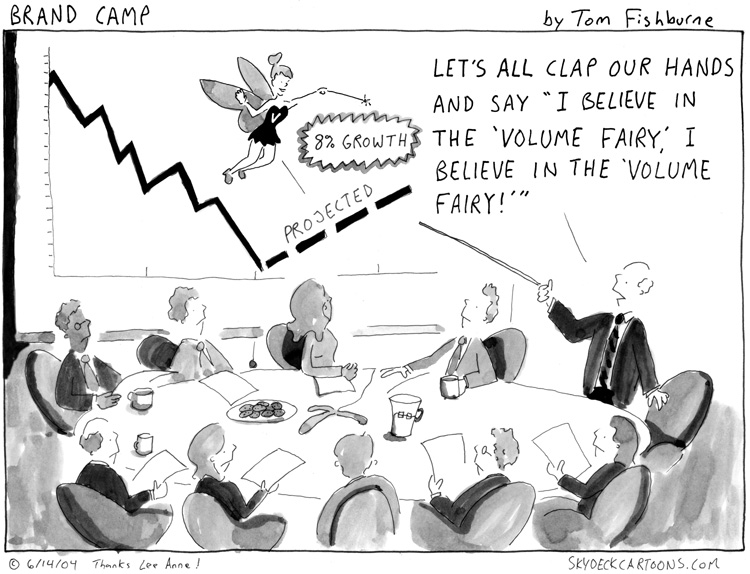 Another issue on salaries is “variables”. I truly believe a fair base salary and a fair results scheme are motivating. Unfortunately – and I hear that from a lot of friends – the “targets” set are unrealistic. Such you can rarely rely on them. The manager’s goal not being motivation, but cost savings, is also counter productive. Aside, it’s simple greed and also just aside, that’s a mortal sin.
Another issue on salaries is “variables”. I truly believe a fair base salary and a fair results scheme are motivating. Unfortunately – and I hear that from a lot of friends – the “targets” set are unrealistic. Such you can rarely rely on them. The manager’s goal not being motivation, but cost savings, is also counter productive. Aside, it’s simple greed and also just aside, that’s a mortal sin.
 Many years ago, there was a question about the difference of a Tourist to a Terrorist. With tourists, there are no bombs involved, but the results are even more devastating… Yes, this is exaggerating. But thousands of divers ruin the coral reefs around the world. Thousands of tourists skiing the alps (or Rocky Mountains) have a devastating effect to that natural preserve. Aircraft exhausts are in high altitude, having a worse effect than ground time. But even back in 2007/08, when I was involved in the
Many years ago, there was a question about the difference of a Tourist to a Terrorist. With tourists, there are no bombs involved, but the results are even more devastating… Yes, this is exaggerating. But thousands of divers ruin the coral reefs around the world. Thousands of tourists skiing the alps (or Rocky Mountains) have a devastating effect to that natural preserve. Aircraft exhausts are in high altitude, having a worse effect than ground time. But even back in 2007/08, when I was involved in the  Name this country
Name this country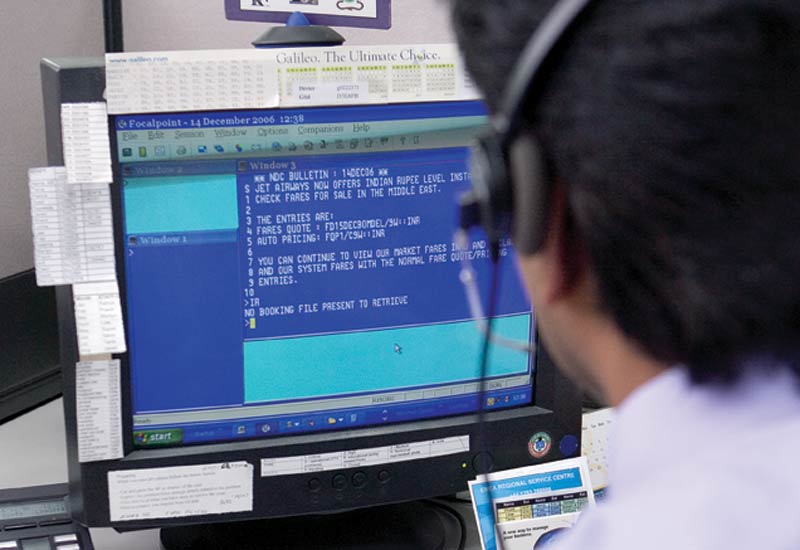 Is that “you”?
Is that “you”?